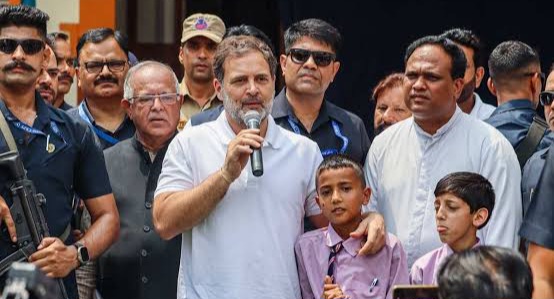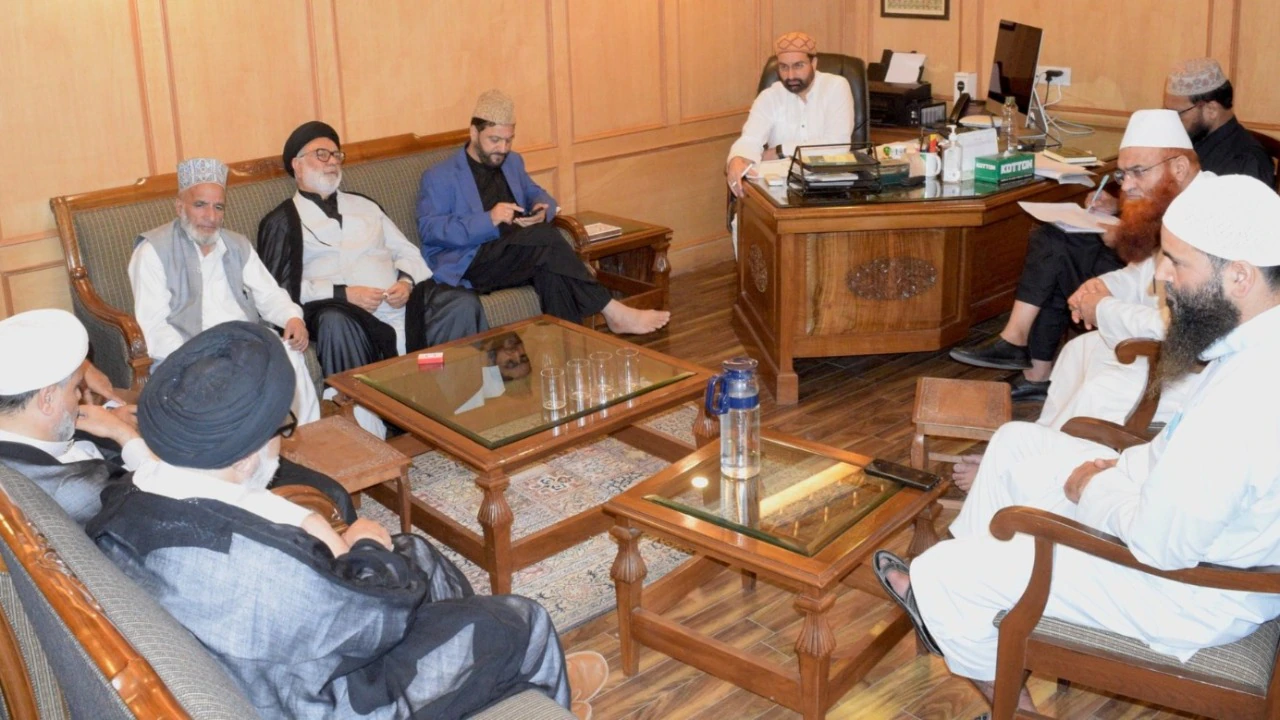Rahul Gandhi Pledges Education Support for 22 Children Affected by Pakistan Shelling in Poonch
By: Javid Amin | 29 July 2025
A Humanitarian Gesture in a Militarized Region
In a deeply compassionate move, Congress leader Rahul Gandhi has announced that he will personally sponsor the education of 22 school-going children from Poonch district, Jammu & Kashmir, who lost one or both parents in the tragic cross-border shelling along the Line of Control (LoC) earlier this year.
This humanitarian initiative follows his visit to Poonch on May 24, 2025, where Gandhi met with families devastated by the violence during Operation Sindoor — a retaliatory Indian military action after the April 22 Pahalgam terror attack that killed multiple security personnel and civilians.
Background: Cross-Border Shelling Kills 13 Civilians in Poonch
The Pakistani shelling on May 2, 2025, led to the deaths of 13 civilians, including women and children in the villages of Balakote, Karmara, and Degwar in Poonch. Among the victims were Urba Fatima and Zain Ali, 12-year-old twins, whose death became a heartbreaking symbol of the ongoing human cost of Indo-Pak hostilities.
Most of the deceased were non-combatants, with little or no warning before artillery shells struck their homes, reducing entire households to rubble.
“We lost everything — our home, our children, our future,” said Nasreen Bano, mother of Urba and Zain, during Gandhi’s visit.
Rahul Gandhi’s Promise: Full Educational Support Till Graduation
Moved by the grief and resolve of these families, Rahul Gandhi directed local Congress leaders in Poonch and Rajouri to immediately identify all children who had lost a parent or guardian in the May shelling.
📋 What the Plan Includes:
-
Complete educational support, including school fees, uniforms, books, and transportation.
-
Private and government school options, depending on existing enrollment.
-
Continued assistance until each child completes graduation or equivalent vocational education.
-
Direct transfer of funds to schools and parents through a transparent aid mechanism.
“This is not charity; this is our responsibility as a nation. These children are victims of a conflict they did not choose,” Rahul Gandhi reportedly told a closed-door meeting in Jammu.
The first tranche of financial support is being disbursed this week, according to Pradesh Congress Committee sources.
The Families Behind the Numbers: Faces of Resilience
Among the 22 identified children:
-
Six lost both parents and are currently living with extended family members or neighbors.
-
Ten children’s fathers were killed, most of whom were daily wage workers or porters near the LoC.
-
Four children are themselves recovering from injuries sustained during the shelling.
Notable cases:
-
Ruqaya Jan (age 13) lost her father and now walks 6 km to the nearest government school.
-
Iqbal and Hina (siblings aged 10 and 8) were orphaned and taken in by their maternal uncle.
-
Samir Ahmed (16) had to drop out to help his younger siblings — he now hopes to return to school with this support.
Operation Sindoor: The Trigger Behind the Violence
Rahul Gandhi’s visit took place in the aftermath of Operation Sindoor, a retaliatory Indian Army operation launched in late April following the Pahalgam terror attack on April 22, where six army personnel and three civilians were killed.
Pakistan’s alleged response came in the form of indiscriminate shelling across the LoC, impacting dozens of border villages in Poonch and Rajouri districts.
This cycle of retaliation once again exposed the vulnerability of civilians, especially children, in these frontline regions — caught between geopolitics and artillery.
Political Significance: From Sympathy to Action
Rahul Gandhi’s act stands out in contrast to the government’s response, which has primarily focused on military retaliation and border reinforcement, with little relief or rehabilitation announced for affected civilians.
By personally committing resources, Gandhi has:
-
Positioned himself as a hands-on leader focused on grassroots compassion.
-
Brought attention to the often-overlooked civilian costs of Indo-Pak skirmishes.
-
Reignited a national conversation around the need for long-term civilian protection, education continuity, and post-conflict rehabilitation.
Political Reactions:
-
Congress leaders hailed the move as “genuine leadership in times of pain.”
-
BJP leaders have accused Gandhi of “emotional optics,” but offered no concrete counter-plans.
-
Civil society organizations and educationists have applauded the step, calling for a government-backed fund for border children.
Bigger Picture: Why Education Aid Matters in Conflict Zones
For children living along the LoC, disruption is a way of life:
-
Schools often remain shut for weeks due to shelling threats.
-
Many drop out to support families after losing parents.
-
Trauma and psychological stress affect learning outcomes drastically.
This educational support:
-
Prevents dropouts in a critical period of life.
-
Offers children emotional stability and routine amidst chaos.
-
Serves as a message of hope that the nation stands with them.
Expert Views:
Dr. Shafiqa Mir, a psychologist working in Poonch, said:
“Interventions like this can break the trauma cycle. Education becomes therapy — it tells the child that their life still matters.”
Call for Policy Action: Beyond Individual Initiatives
While Rahul Gandhi’s gesture is commendable, experts and activists agree that individual efforts alone cannot substitute long-term policy intervention.
What’s Needed:
-
A dedicated education and trauma support fund for LoC-affected children.
-
Mobile schooling units in high-risk border belts.
-
Psychosocial support teams embedded in conflict-affected districts.
-
Guaranteed scholarships for children who lose parents to militancy or shelling.
A 2024 report by the J&K Rights Collective notes that over 600 children have lost one or both parents due to cross-border violence since 2003.
Bottom-Line: Compassion Is Leadership
Rahul Gandhi’s decision to foot the education bills of 22 Kashmiri children is not just charity — it’s a bold political and humanitarian message. It reminds the nation that civilians are not collateral damage, and children deserve classrooms, not casualties.
“No act of kindness can bring back their loved ones. But education can give them a future,” a local teacher said as she helped complete the children’s admission forms.
In a region often forgotten between military statistics and political slogans, this act stands as a beacon of what leadership can look like in times of grief.



